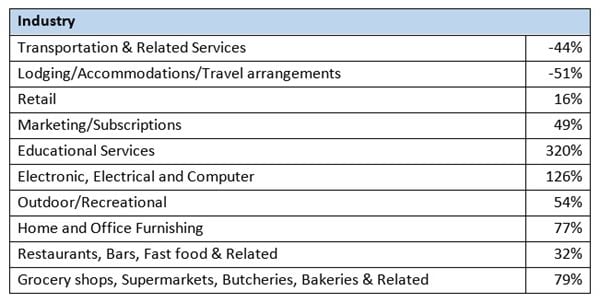
Top stories






More news





ESG & Sustainability
#Sona2026: President announces crisis committee to tackle SA's water challenges









Average e-commerce spend recorded on FNB Merchant devices grew 30% year-on-year during the first half of 2020 compared to 2019. During the same period, the active e-commerce merchant base increased by 15%.
These growth values exclude travel and accommodation related spend which is usually a significant contributor to overall e-commerce spend.
Thokozani Dlamini, FNB Merchant Services CEO, says the impact is not only on shopping behaviour, but the manner in which consumers opt to pay for goods and services. For example, when considering franchise food delivery services, very few consumers physically pay via cash or card, most of the payments are carried out digitally.
“For those consumers that still go into brick and mortar stores for groceries and other essentials, we have seen a significant growth in the use of contactless card payments,” adds Dlamini.
Sector performance in e-commerce between January and June 2020 on FNB Merchant Services, compared to 2019.

FNB says demand has been largely driven by educational services on the back of home-schooling and distance-learning requirements. This was further supported by an increase in demand for computing equipment and home/office furnishing to facilitate the distance-learning drive and work-from-home initiatives that many individuals and companies adopted.
An increase in the need for gaming and related entertainment (PlayStation, Xbox, etc.) had to be satisfied as outdoor hobbies were restricted.
“From a rand value perspective, when compared to the average Q1 values (Jan to Mar), the lockdown period resulted in e-commerce spend decline of -21% in April 2020, while Level 4 saw recovery to 10% compared to the average Q1 values. Level 3 of the lockdown has seen further recovery to 12% compared to the average Q1 values,” says Dlamini.
“Behaviour will and has certainly changed quite rapidly on the back of Covid-19. Transaction volumes have increased at a much faster rate than value, indicating a lot of smaller purchases are being made. Many customers who had reservations about shopping online are beginning to realise that the ease and efficiency outweighs trekking to shops and malls,” concludes Dlamini.